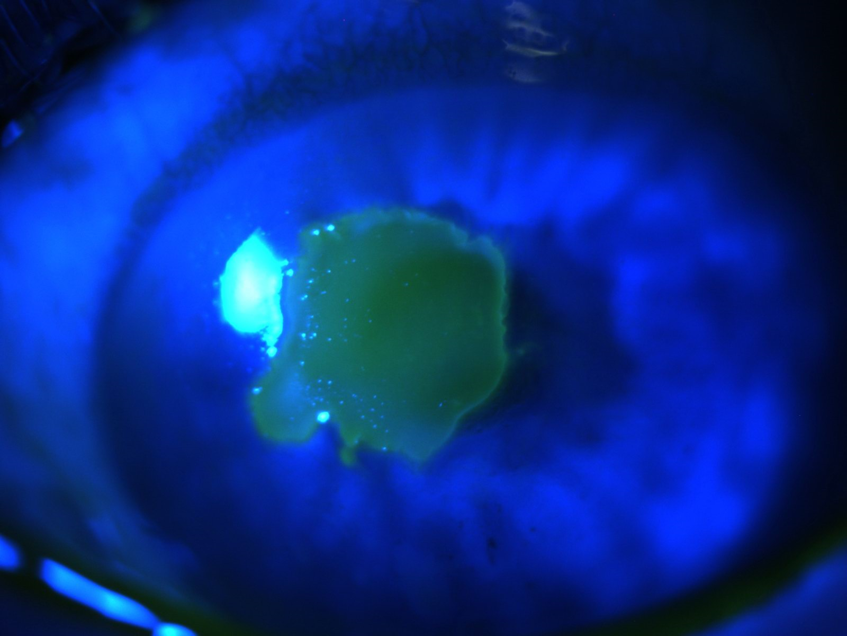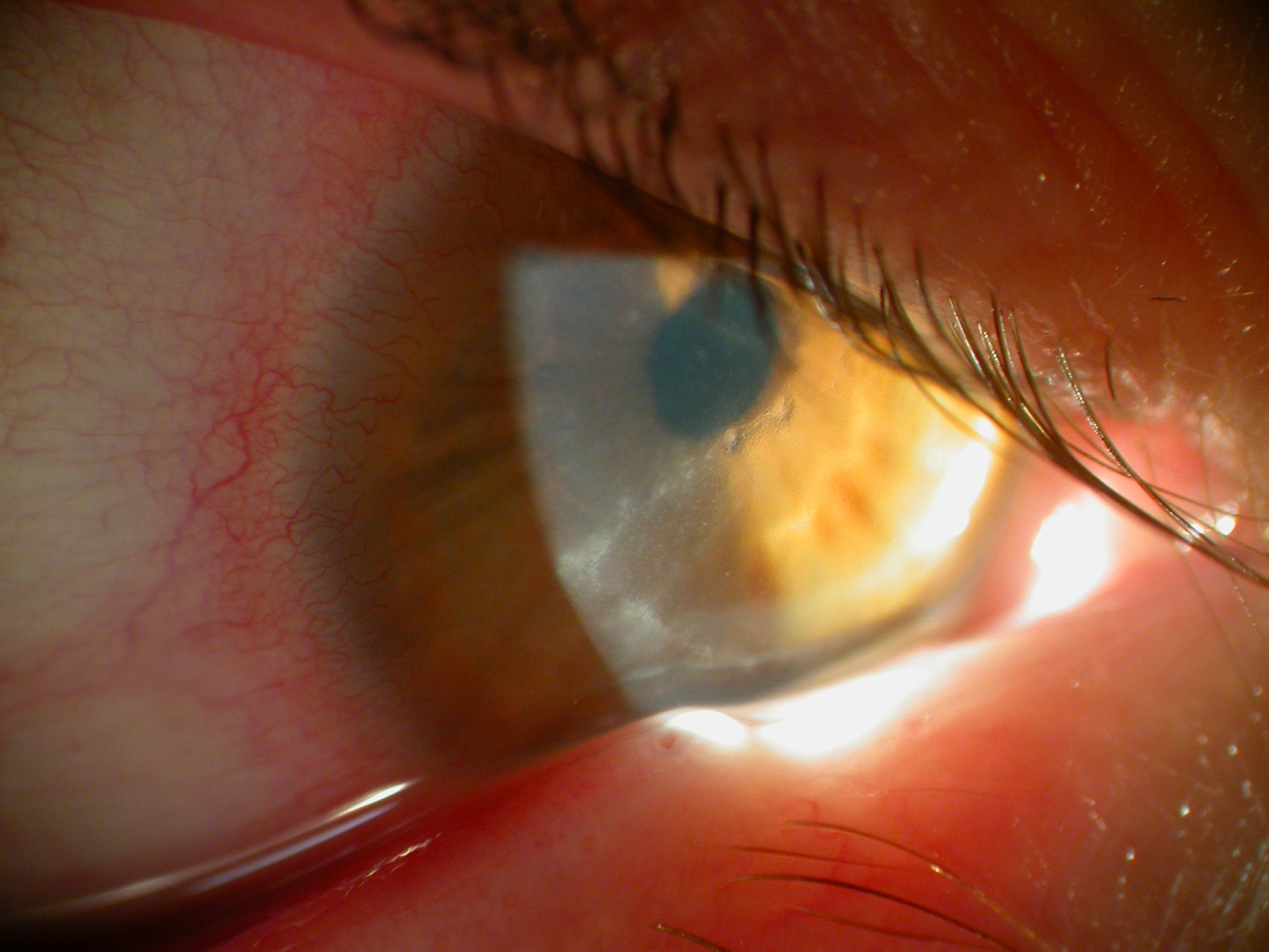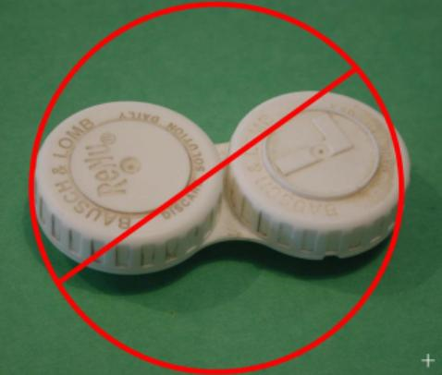How to Prevent Corneal Ulcers in Contact Lens Wearers


What is a Corneal Ulcer?
Corneal ulcers are one of the most serious conditions related to contact lens wearers. A corneal ulcer is an infection of the front, clear dome of the eye. Ulcers will lead to a corneal scar that can lead to a permanent reduction or loss of vision.
As a contact lens wearer, how do you prevent this devastating infection?
- Wash your hands! The easiest way to prevent infection is to keep your hands clean prior to inserting your lenses.
- Dispose of the lenses as prescribed. A daily disposable lens is designed to be disposed of daily, just like a 2-week lens is designed to be thrown away every 2 weeks. By keeping the lenses longer then they are designed for, your risk of infection goes up.
- NEVER sleep overnight in your lenses. It seems harmless, but leaving your lenses on your eye through the day and then overnight leads to what is called corneal hypoxia, or a reduction of oxygen to your eyes. This leads to corneal swelling that breaks down the surface of the cornea, dramatically increasing your risk of infection.
- Change to a daily disposable lens. Although the initial cost of daily lenses is usually more, people that wear daily disposable lenses have the lowest chance of getting a corneal ulcer. We can’t put a cost on that!
- Like sleeping in your lenses, you should NEVER expose your eyes to water while wearing soft lenses in your eye unless otherwise told by your eye care provider. Swimming in your pool, a lake, or relaxing in a hot tub while wearing soft lenses puts you at a significantly higher risk for an infection caused by a Acanthamoeba, a severe parasitic infection. Even taking a shower in your lenses puts you at risk. It is not worth it!
- Lid hygiene is often overlooked, but can certainly also be a cause of eye infections. Blepharitis is a manageable eye condition but if left untreated, can lead to a buildup of bacteria on the lid margins, leading to an increased chance of a corneal ulcer.
- If wearing a lens that is not a daily disposable lens and that needs to be cleaned daily, be sure to follow the manufacturers cleaning instructions. It is easy to take shortcuts, but most cleansers require you to rub the lenses prior to soaking overnight for a certain amount of time. Additionally, the solution in the case must be replenished daily. Most importantly, we recommend changing out the actual lens case every 1-3 months. The infectious agent often resides in the lens case.
- If you had an ulcer that has led to a corneal scar that is affecting your vision, scleral lenses have been one of the best ways to restore your vision.

If you are a contact lens wearer and suspect a corneal ulcer, don’t wait for symptoms to worsen. Reach out to us today at 513-779-3937 to book a consultation. We’re here to help you maintain optimal eye health and prevent complications before they arise. Protect your vision—your eyes are irreplaceable!

